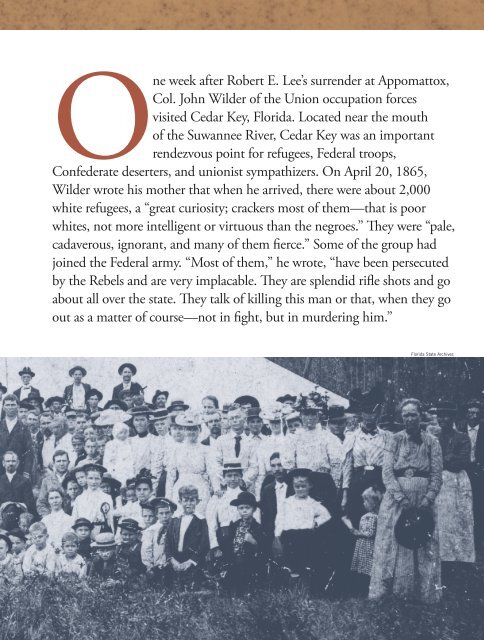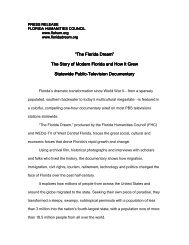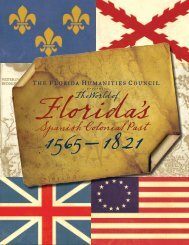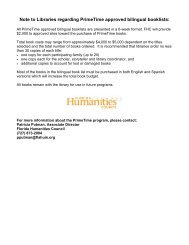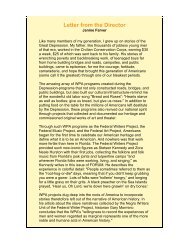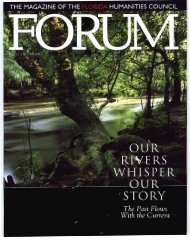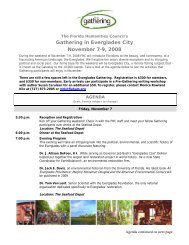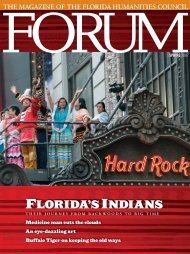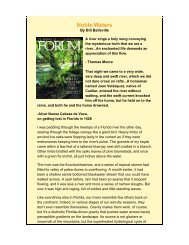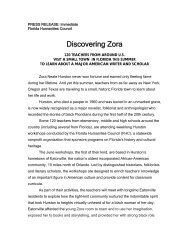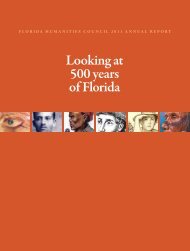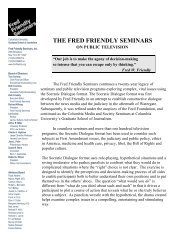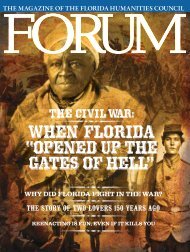THE MAGAZINE OF THE FLORIDA HUMANITIES COUNCIL
THE MAGAZINE OF THE FLORIDA HUMANITIES COUNCIL
THE MAGAZINE OF THE FLORIDA HUMANITIES COUNCIL
You also want an ePaper? Increase the reach of your titles
YUMPU automatically turns print PDFs into web optimized ePapers that Google loves.
One week after Robert E. Lee’s surrender at Appomattox,<br />
Col. John Wilder of the Union occupation forces<br />
visited Cedar Key, Florida. Located near the mouth<br />
of the Suwannee River, Cedar Key was an important<br />
rendezvous point for refugees, Federal troops,<br />
Confederate deserters, and unionist sympathizers. On April 20, 1865,<br />
Wilder wrote his mother that when he arrived, there were about 2,000<br />
white refugees, a “great curiosity; crackers most of them—that is poor<br />
whites, not more intelligent or virtuous than the negroes.” They were “pale,<br />
cadaverous, ignorant, and many of them fierce.” Some of the group had<br />
joined the Federal army. “Most of them,” he wrote, “have been persecuted<br />
by the Rebels and are very implacable. They are splendid rifle shots and go<br />
about all over the state. They talk of killing this man or that, when they go<br />
out as a matter of course—not in fight, but in murdering him.”<br />
Florida State Archives<br />
F L O R I D A H U M A N I T I E S C O U N C I L F O R U M / W I N T E R 2 0 0 6 1


